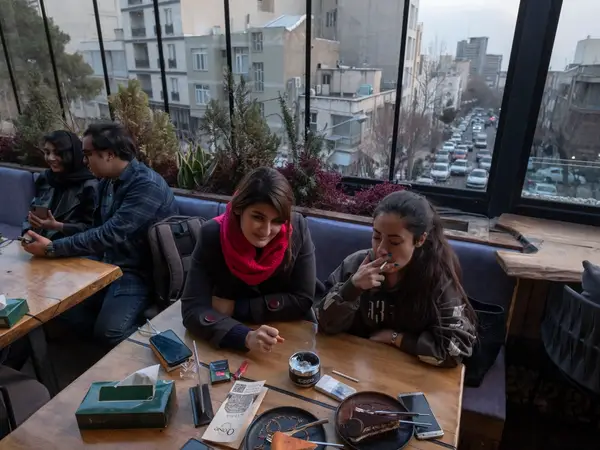Iranian authorities have been shutting down cafes around Tehran University campus in the past eighteen months to “protect the wholesome Islamic-Iranian culture.”
Closing cafes and coffee shops, which are very popular with students and other young people, is apparently part of the larger plans of the ruling hardliners to shut down all such establishments as symbols of “corruptive western culture”.
In the past two years many cafes and coffee shops have been forced to shut down across the country, often on various charges including “failure to enforce the hijab” or for live music.
In a letter to the higher education minister apparently leaked on social media by hackers who targeted the ministry earlier this week, the university’s chancellor, Seyed Mohammad Moghimi, has boasted that all but one of the cafes around the university campus have been closed “with the help of all of the university’s departments” in the past eighteen months.
Authorities have not confirmed or denied the authenticity of the letter which suggests that the university owns the land on which the buildings of the cafes stand and offers cooperation in shutting down even those built on land not owned by the university.
Many social media users are baffled that the chancellor of the country’s biggest and oldest university should be so concerned about the existence of cafes around the university campus.
“I think shutting down cafes is useless. Shut down the university to find relief from your concerns,” a comment on X said while someone else opined that the authorities are concerned about these cafes because they are a place for students to gather freely. “I forgot the parks around the university. You should turn them into parking lots, too,” another tweet said.
Meanwhile, on Saturday Defa Press, the news agency of Iran's Armed Forces, alleged that some cafes had been “centers for networking against national security”.
The article in Defa Press, used complex syllogism to prove its allegation and claimed that half of the 150 cafes in the central areas of the capital Tehran, where the said university campus is also located, had been partially funded by “European embassies, particularly the one involved in last year’s riots” before shutting down.
Iranian authorities and hardline media always refer to last year’s nationwide protests during which over 500 protesters were killed as “riots” and “sedition” and blame western powers of stirring them up to weaken the Islamic Republic and destroy it.
“Over 50 percent of these [cafes] were not economically viable but they continued to operate because all of them received funding from the same source,” Defa Press wrote.
Defa Press claimed that the cafes were helped by these western powers because they were places for young gamers to convene and network, and argued that new technologies, including those employed by these gamers, could be used against the Islamic Republic’s national security without elaborating on the connection.
Referring to Tehran University Chancellor’s letter, writer and journalist Abdoljavad Mousavi in a commentary for the reformist Ham-Mihan newspaper on Tuesday strongly criticized the efforts for Islamizing the “appearance” of the Iranian society including elimination of everything that looks influenced by the western culture.
Comparing the mindset of the Iranian hardliners to the Taliban, Mousavi warned that shutting down cafes -- like banning video players in the 1980s, satellite TV in the 90s and internet filtering after 2002-- would only encourage “underground cafes” and draw more people to these underground establishments. “Stop acting with [fake] modestly, do what your brothers [in Afghanistan] did. Ban women from leaving their homes. Shut down the universities too and put an end to all this,” he wrote.
